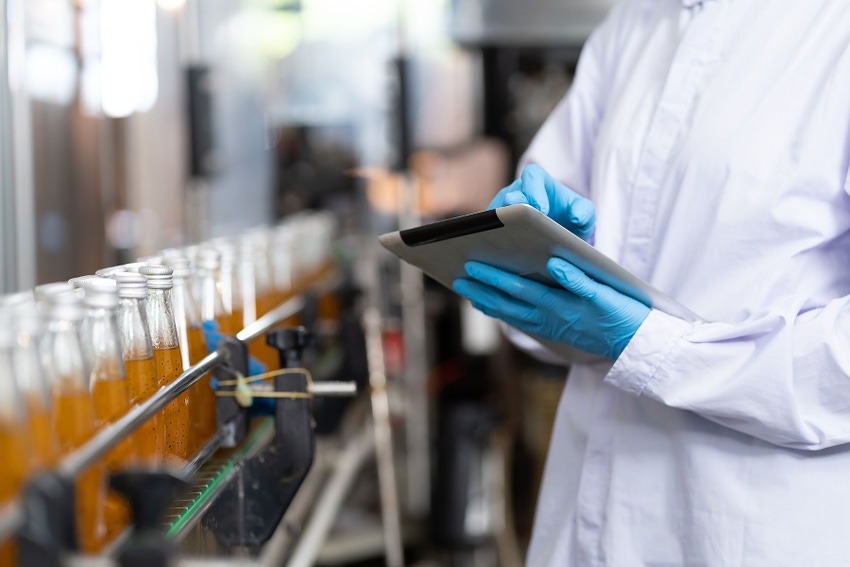PartnerSlate co-founder details roadmap to successfully navigating co-man landscape
Here's the first of a two-part series exploring contract manufacturing’s rise from niche to a critical part of F&B supply chains, and the outlook for the industry’s future.

At a Glance
- Contract manufacturers are essential to the F&B industry, but they must adapt to the changing needs of their customers.
- Contract manufacturers need to be more transparent with data, improve their service and be more price competitive.
- It's important for contract manufacturers to embrace technology in order to compete and thrive in the future.
This article is the first of a two-part series exploring contract manufacturing’s rise from niche to a critical part of F&B supply chains, and the outlook for the industry’s future.
For the past 20 years, the food and beverage contract manufacturing Industry has enjoyed tremendous growth and resilience in North America. Once a niche market, contract manufacturers now serve more than 25% of the $1 trillion food CPG industry, as they are the foundry for nearly all innovation in the sector’s twin growth engines: private label and specialty foods.
Times are changing, though. Contract manufacturers need to evolve and adapt if the sector is to continue enjoying a compound annual growth rate (CAGR) of 9.7% from 2023 to 2030.
Riding the wave of transformation
The remarkable transformation of F&B CPGs in the 21st century is the result of two trends: a generational shift in consumption habits (e.g., towards snacking on specialty foods and diverse flavors), and an abundance of technology and retail innovation that has lowered the barrier to entry for entrepreneurs.
Contract manufacturers are the unsung heroes powering this wave of innovation. For brands looking to scale quickly, using a contract manufacturer is a far more efficient way to manage capital.
A brand that catches fire can launch a national product with less than $250,000—an order of magnitude or two less than was required a generation ago. It also enables leadership to focus on innovating and selling, leaving the production to contract manufacturers who have expertise and scale. Of course, the outsourcing of manufacturing has been the norm in unlocking productivity in other durable goods like clothing and electronics for decades; F&B is only now starting to ramp up.
Contract manufacturers are also a crucial part of the supply chain for large Fortune 500 companies, both for innovation and managing legacy brands. For example, The Kraft Heinz Co. embarked upon a plan to “lean more on external manufacturers” in 2020, when it already worked with 300 contract manufacturers. Corporations have realized an urgent need for supply chains to become more flexible, and sourcing from multiple contract manufacturers is a key theme of production capacity resilience.
Rougher waters ahead
The industry, however, is heading into more difficult territory. The end of a financing bubble has sent new product introductions into sharp decline, with about two-thirds fewer new product introductions than two years ago, according to data from SPINS.
Big corporations are also revisiting contract manufacturing plans. After adding 50 contract manufacturers to its roster in the first few months of the Covid-19 pandemic, General Mills CFO Kofi Bruce said the company shed contract manufacturers first as demand tapers because they are 10%-15% more expensive.
On top of all this, a comment made by Walmart’s U.S. CEO John Furner that new weight loss drugs like Ozempic are reducing the amount of food that consumers purchase prompted much media speculation about how this will transform food CPGs. The influential New York University professor Scott Galloway reckoned that this new class of drugs will have a more profound transformation of the U.S. economy than generative artificial intelligence (AI).
Where contract manufacturers head from here
Not all is doom and gloom for contract manufacturers, who still have the potential to double their share of the $1 trillion F&B manufacturing market. Doing so will require contract manufacturers to adapt and be responsive to the changing needs of their clients.
Chief among the concerns of contract manufacturers’ customers is transparency into data, improved service and price competitiveness. Many brands, which are used to fully digital and data-driven experiences in marketing, distribution and other areas of their businesses, are stymied by analog and non-cloud-based workflows that are still the norm amongst contract manufacturers.
If contract manufacturers can navigate these waters, they will still benefit from substantial tailwinds. The paradigm shift away from brand monoliths will accelerate as Gen Z ascends in buying power, and this plays to contract manufacturers’ structural advantage of speed and flexibility for scaling.
PartnerSlate’s data shows brands can launch full-scale production runs with contract manufacturers in as little as three months, while vertically integrated manufacturing requires 12 months to 18 months to launch and more than two years to scale (a lifetime in the age of TikTok).
Domestic contract manufacturers are also well positioned to ride the strength of private label sales, which grew 16% in the past two years. There will be increasing price pressure from international suppliers on high-volume, shelf-stable products, but domestic contract manufacturers maintain a competitive advantage for specialty foods—the area where private label growth is highest.
Technology will play a big role in contract manufacturers’ abilities to compete and thrive in the future. The 2022 IDC Food and Beverage Supply Chain Findings and Implications showed some momentum towards adopting technology, but it is still very low. For example, only 16% of F&B manufacturers have adopted cloud enterprise resource planning (ERP) solutions so far, and while that is twice the number from the prior year, it is way behind the 70% of retailers that are now using cloud ERP.
In the second article of this two-part series, we’ll explore some of the areas of technology that are helping contract manufacturers become more efficient partners in the future.
About the Author(s)
You May Also Like






